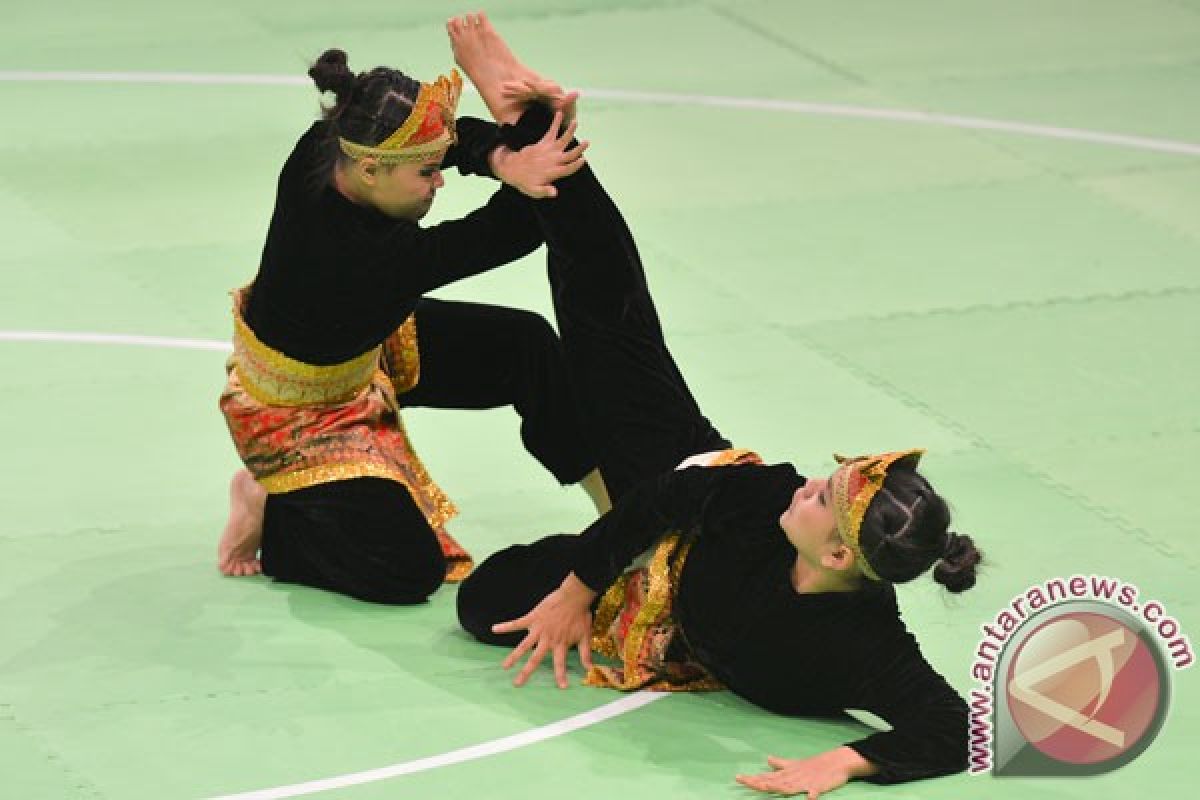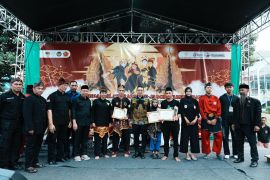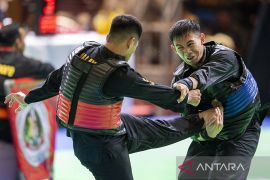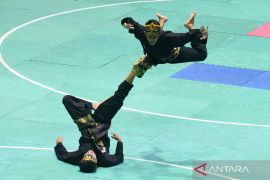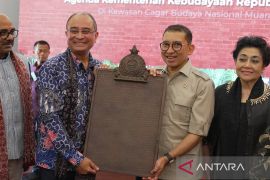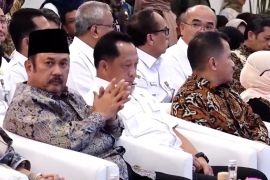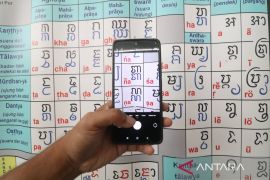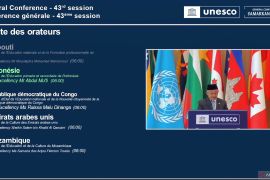Indonesia won 14 out of the total 16 gold medals up for grabs in pencak silat also participated in by Malaysia, Japan, Brunei Darussalam, India, Nepal, Laos, Thailand, Singapore, the Philippines, Vietnam, Chinese Taipei, Uzbekistan, and Kazakhstan in the 18th Asian Games co-hosted by the Indonesian capital city of Jakarta and Palembang from August 18 to September 2, 2018.
Pencak silat debuted in the largest multi-sport event in Asia. This is because Indonesia had the privilege to propose pencak silat, its traditional martial art, in which it had hopes of winning gold. The country certainly did not miss the opportunity to make pencak silat as its "gold mine" in the Asiad.
At the closing ceremony of the Asian Games 2018, dozens of performers, wearing white clothes and red headscarves, demonstrated the movements of pencak silat to spectators at the Bung Karno Main Stadium in Senayan, Jakarta.
In the presence of rain that began in the afternoon, the performers displayed a variety of Indonesian martial arts movements, which included strikes, kicks, sweeping, and take down.
Pencak silat is a traditional martial art that has played an important role since Indonesia`s ancient history. West Sumatra and West Java are believed to be the origins of the sport, but it later spread across the country.
Found in several regions across Indonesia with diverse variations, the self defense form is known by different terms, such as Silek, Mancak, Ulu Ambek/Aiau Ambek, Sewah, Galuik in West Sumatra; Bepencak in Bangka; Pence in Banten; Silat in West Java, Jakarta, Banten, Central Java, East Java, Yogyakarta, and Bali; Akeket, Okol, and Penthengan in Madura; Kuntau in West Kalimantan, Central Kalimantan, South Kalimantan, and East Kalimantan; Langga in Gorontalo and Amanca in South Sulawesi; Pakuttau in West Sulawesi, and Mencak, Kuntuh in West Nusa Tenggara.
Pencak Silat in Indonesia is richly diverse, which is apparent from the long-standing history and growth of each school, oral traditions and expressions, moves and styles, accompaniments, costumes, and levels.
The diversity is highly respected among Pencak Silat practitioners from all schools and is often considered to be part of what makes Pencak Silat in Indonesia beautiful.
The official name used to indicate more than 800 martial arts schools and styles spread across more than 13 thousand islands in Indonesia is called pencak silat.
The country has also established a 5.2-hectare pencak silat school and hall called Padepokan Pencak Silat Indonesia located at Beautiful Indonesia in Miniature Park and was inaugurated by the then president Suharto in 1997.
Although better known worldwide as a type of martial arts, Pencak Silat is, in fact, an Indonesian tradition that has been passed down generations.
In addition to its sporting aspect, the Pencak Silat tradition also encompasses the aspects of mental-spiritual, self-defense, and art.
The term Pencak Silat is formed from two words, which are pencak and silat. The term "pencak" is better known in Java, while the term "silat" or "silek" is better known in West Sumatra, to describe a group of martial arts having various similarities. In addition to using local terms, each region has its own move, style, accompanying music, and unique supporting equipment.
The moves and styles in Pencak Silat are strongly influenced by various elements of art. These moves and styles are a unity of body movement (wiraga), movement feeling (wirasa), and movement fit to the accompanying music (wirama). The supporting equipment for Pencak Silat includes costumes, music instruments, and traditional weapons.
Pencak Silat practitioners are taught to maintain their relationship with God, human beings, and nature.
Taking into account the uniqueness and traditional and cultural diversity of pencak silat, the Indonesian government has submitted a proposal to the United Nations Educational, Cultural and Scientific Organization (Unesco) for inscription on the World Intangible Cultural Heritage (ICH) list.
"Pencak silat has been registered with Unesco since 2017 for inclusion on the list of world intangible cultural heritage. The selection process is ongoing," Hilmar Farid, director general of cultural affairs of the Education and Culture Ministry, had stated in West Sumatra on the sidelines of the opening of the Silek Art Festival.
Pencak silat and other proposals from several countries will be treated for the 2019 cycle that are to be examined by the Committee at its 14th session in November-December 2019.
Unesco will study the origin and preservation efforts of pencak silat in Indonesia, he added.
"Preservation efforts are taken into consideration to answer how far pencak silat remains alive, which is one of Unesco`s questions," he remarked.
The budget allocation for pencak silat preservation by the government, the participation of pencak silat in the Asian Games 2018, and Silek Art Festival being held until November 30, 2018, will contribute to the judgment.
He revealed that the neighboring country Malaysia had also proposed pencak silat to be recognized by Unesco as the country`s intangible cultural heritage. He, however, refused to comment further on the claim by that country and said his office will focus on the proposal submitted by Indonesia.
"Pencak silat that we have proposed does not only concern sport but also traditions having deep cultural values in it," he revealed.
Indonesia is optimistic that Unesco will recognize pencak silat, which is not only a physical exercise but also epitomizes character building and cultural values.
Editing by Sri Hariyati
Reporter: Fardah Assegaf
Editor: Fardah Assegaf
Copyright © ANTARA 2018
